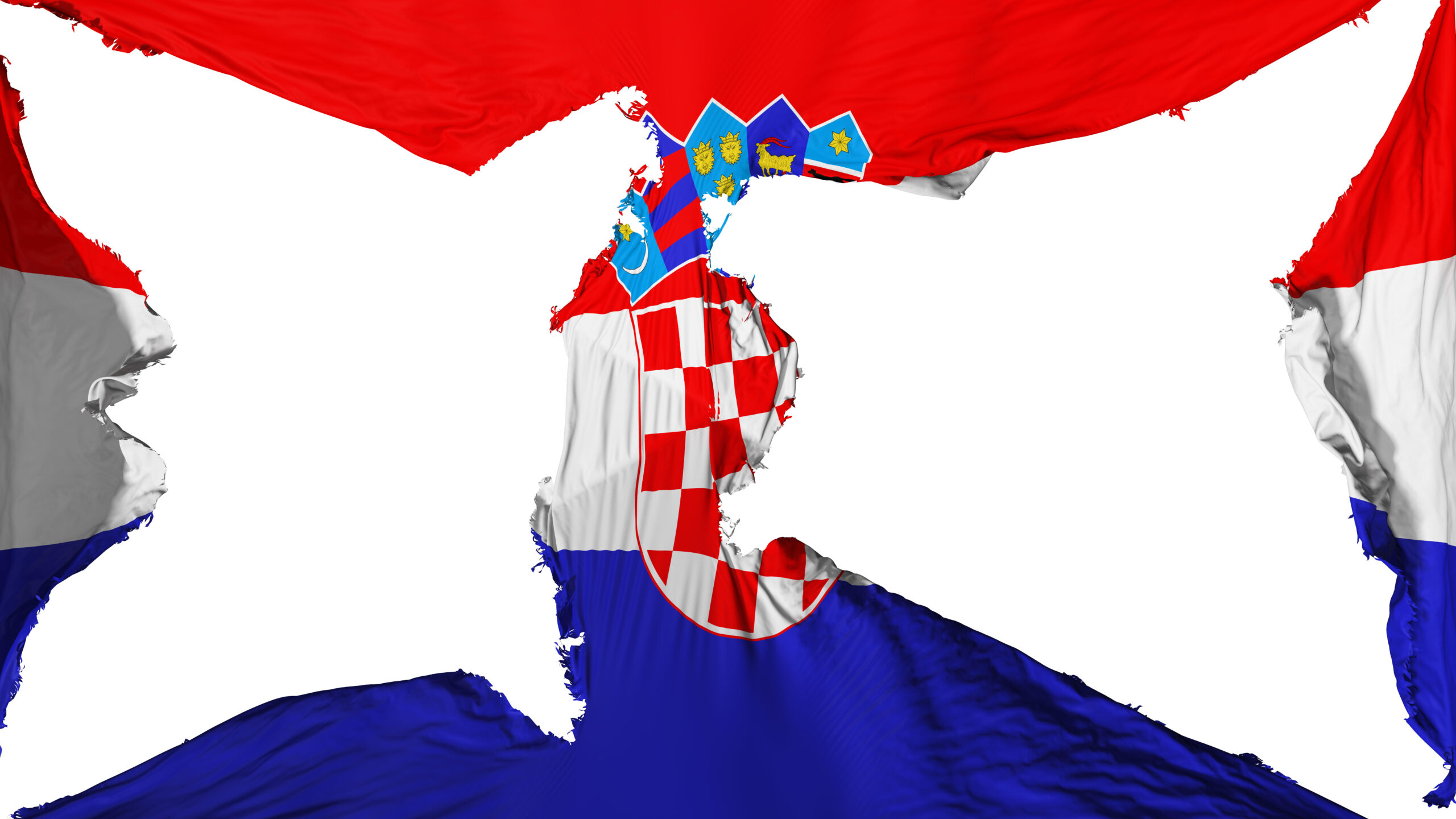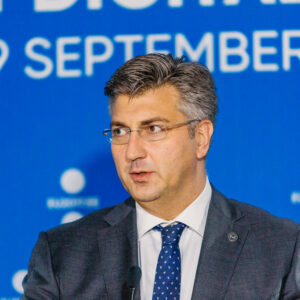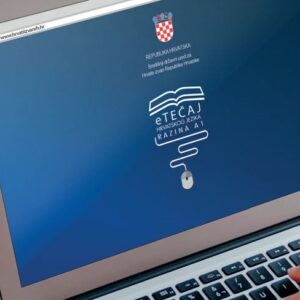Fragmentation of the so-called patriotic (domoljubne), usually dubbed as right-wing, body politic in Croatia has never been more vigorous than at the present time. All parties and political movements (and there are many) involved proclaim either in words or implications a vigorous critical loyalty to Croatia and, ultimately, to the values of the 1990’s Homeland War. However, regretfully, although all proclaim same or very similar political-social goals, burrows that separate them from each other appear insurmountable.
Fragmented body, say many an academics in the world, symbolises castration anxiety as well as loss of control; in this case over national direction. The emergence and seemingly flourishing on life-support from sections of the electorate of more than 150 political parties in Croatia vying for power, espousing a desperate need for change, may be construed as evidence that control has actually been lost in Croatia especially over the process of full democratisation as espoused in the values of the Homeland War.
In recent years, it has become obvious to all but the willfully blind that much is not well with the Croatian self-determination and ordered liberty to be had in a functional democracy where red tape and corruption are minimised (where detrimental practices inherited from the communist Yugoslavia era are thoroughly weeded out from society and public administration).
The signs that something is seriously wrong are myriad:
- a degree of political polarisation unprecedented since the era when Croats won the bloody war of Serb aggression in 1990’s through which independence was won – through which Croatia seceded from communist Yugoslavia
- a bitter and debilitating culture war between and within both the left-winged (mainly former communists) and right-winged (who pursue decommunisation and Croatian national identity in accordance with Homeland War values) political spectrum that appears to define and/or steer everyday life of even ordinary people;
- the erosion of the bonds of civic amity and emergence of a civic culture animated by mutual hatred and contempt based on political ideology and directions in which Croatia should develop and assert its place in the democratic world;
- a pervasive cynicism and a growing crisis of legitimacy of all or any party or movement body politic;
- the seeming loss of any notion of an overarching common good to which private interests must be subordinated and resultant understanding of politics as a zero-sum game;
- and what might be called “gridlock” wherein the fragmentation of the national body politic into a plethora of competing interests (more often personal than not) whose conflicting and ever-escalating demands induce something akin to political paralysis. (Most Croatians are acutely and keenly aware that the system is broken, that public institutions are not functioning the way they should in a democracy but seem unsure as to how to fix this.)
Indeed, Croatia (as do some Western countries) seems to be witnessing the rise of what several political scientists call “anomic democracy” in which democratic politics becomes more an arena for the assertion of conflicting interests than the building of common purposes. A common purpose for Croatia, as the values asserted via the 1990’s Homeland War tell us, is that of democratisation and decommunisation. The latter encapsulates the absolute need to rid the country of the totalitarian-like control in all aspects of state authority and expression whether it be in user-friendly legislation that promotes economic growth, an independent judiciary or balanced mainstream media etc.
In fact, so divided does Croatia appear and so dysfunctional has its politics become that it feels like being in the midst a “cold civil war”. The vitriol that gushes out between people of differing political allegiances is often suffocating. Perhaps herein lies the reason why true national leaders, whom a significant portion of people trust, are practically non-existent or, at least, invisible, or not afforded a chance to shine in the environment of many egocentric or “I know best” players.
Croatia’s critical public consensus regarding secession from communist Yugoslavia was at its peak during 1990’s and the Croatian Democratic Union/HDZ led this field of goal-focused national harmony. Then came year 2000 and increased subversive political activities from former communists which resurrected Pro-communist Yugoslavia nostalgia in at least 30% of the Croatian national body politic. This, undoubtedly, led to the collapse of the overwhelmingly widespread consensus as to how Croatia should develop and a disastrous and shameful treatment of war veterans from the Homeland War. The results of such a collapse in consensus is a society that begins to disintegrate into collection of warring tribes. The most striking example of this occurs when a society explodes into bitterly opposed camps that, disagreeing fundamentally on the moral and political principles that should govern public life, are ultimately unable to coexist in peace. It is not rare to come across people in Croatia who believe that nothing bar “gunpowder” will save Croatia, i.e. bring it back to the point of “Croatia above all else” that was in the 1990’s! On a lighter or less dramatic note, as the public philosophy that united Croatian people in the 1990’s gradually disappears, the society splinters into a multitude of hostile groups – a multitude of political tribes, as it were, which far from viewing each other as partners in a common enterprise and exhibiting an attitude of trust or civility toward one another, will instead view each other with hostility, fear and resentment.
At the same time, insofar as decisions on public policy involve the use of means to achieve social goals, the loss of shared purposes make decision-making increasingly difficult, if not impossible. If we can’t agree about where we are trying to go, how are we ever going to agree about – or even rationally discuss – the best means to get there? In short, the groups into which the polity has fragmented will be increasingly unable to reach agreement about public policies, increasingly reluctant to make compromises, and increasingly unwilling to sacrifice their own interests for the good of the community as a whole. Thus, unified action on the part of the community will become increasingly difficult if not impossible and political paralysis increasingly possible. The machinery of democracy continues to operate, but effective governance becomes impossible. The end result is the loss by the state of its legitimacy, its moral authority.
Today in this year of General Elections due around September election platforms are already being formulated and it is not unusual to come across the slogan or rhetoric that goes something like this: ”We will return Croatia to the Croatian People”, “We will return the government to the people”, etc. These emerge from a number of political parties or movements, particularly those who have positioned themselves on the right-wing or conservative side of the political spectrum.
But, how can you have “government by the people,” without having a people?
Surely, the multitudes of political parties and movements – the many personalities vying for the top, result in the scattering of votes (people) that would form that critically needed consensus for the country. Today in Croatia, pluralism has grown to the point where, we’ve reached the stage where we are ceasing to agree even in basic respects on what man is and how he should live, where morally and intellectually we can scarcely be considered one people. This is particularly visible in the shambles and political trade-offs regarding the importance for Croatia’s sovereignty of the Homeland War. The ever-growing loudness of pro-former-communist regime via left-wing parties and political movements, aggravates the critical consensus for national direction to a painful level. Hence, the common body of cultural capital on which Croatia has historically traded is disappearing noticeably, and its political institutions have become increasingly dysfunctional in that they fail to adhere to common good and insert into the “national” the “personal” interests. As for what the future holds, insofar as the prospects for re-establishing some type of substantive consensus any time in the foreseeable future seem slim, it seems likely we’re looking at dysfunction as far as the eye can see. And, that is not, to put it gently, a happy prospect.
Our politically fragmented country, as reflected in the current heated political factions, created an embankment foreclosing the opportunity for the creation of real discourse. The impetus is on us, the citizen, to act as catapults and destroy that wall, and partake in holistic discourse with one another, to push for and stand behind a leader who has not lost sight of why Croatia fought for independence and has the skill and supporting “machinery” to avert the possible disaster of the loss of Croatian identity and will. This thought, or rather wish, leads me to the beginning of this article regarding the fragmentation of the patriotic body politic.
On Sunday March 15th the Croatian Democratic Union/HDZ (current major political party holding a coalition government) is holding Party elections, characterised by the split of the party into two evidently viciously warring camps. Current President Andre Plenkovic and his team on one side and Miro Kovac and his team on the other – each asserting that they are the right people to reinvigorate this fragmented party into what it once was – a party to be looked up to by a large proportion of the nation’s population. The implications of this rest on the realisation that even the Croatia’s major political party, that ushered in Croatian independence and secession from communism, has lost the critical consensus regarding where Croatia should go or should be; one faction claiming to be “more Croatian” than the other. Furthermore, also on the right-wing of politics, there are a number of political parties and movements and independent politicians vying for a similar outcome if elected into government at this year’s General Elections. The leading groups opposing HDZ’s control of the right-winged or patriotic electorate are the Croatian Sovereignists (led by Hrvoje Zekanovic and made up of a number of smaller political parties and individual activists) and their current coalition partners in the Parliamet (Block for Croatia/Zlatko Hasanbegovic and independent MP Zeljko Glasnovic) as well as the newly founded Domoljubni Pokret (Patriotic Movement) headed by Mirislav Skoro.
There does not seem to be much movement on either the left or the right side of the political spectrum to reel into their fold voters from the opposing ideological camps. This of course suggests that nationally, ideological divisions still prevail and, hence, attachments to individual politicians rather than party programs (for all the people regardless of their political ideology). Political ideology defined life during the communist Yugoslavia era and it seems it will take some serious work in order to free the people of this burden, and encourage them to look beyond political personalities when voting. Otherwise, fragmentation of body politic will continue to flourish even though the race to secure a cushy position for the individual politician and not for true representation of voter or constituency needs is obvious, and in essence disliked by the very constituency.
As socio-political actors, it is time when people and politicians need to realise that they are not on a crusade when it comes to Croatia as a legitimate State; rather, that they are, at this time of severe fragmentation of body politic, on an exploratory expedition to bring Croatia to how it was imagined and fought for during the Homeland War. Croatia is independent, sovereign and as such has the capacity and validity to make its own decisions for national welfare.
While the end-goal of electoral politics is winning, it should also be more about the advancement of certain programmes and policies. In a democracy it is the latter that brings in votes. And when faced with the reality of electoral or body politic fragmentation arrived at through personal ambitions of individual politicians, unless critical consensus is reached between them, leading to programme-framed and managed coalition – victory is poor, if at all existent. An interesting six-month period for Croatia and its progress into full democratisation and national identity – coming to your door! Play your part for Croatia! Ina Vukic




